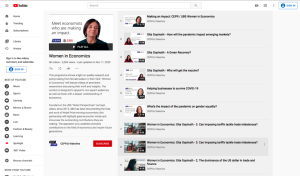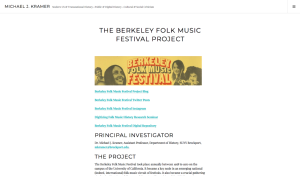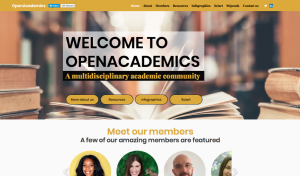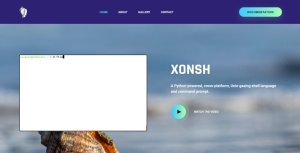Theme: Economics
Back to Top
|
 |
|
Women in Economics
|
Social studies |
|
Learn from leading economists with "Women in Economics." Following the "Nobel Perspectives" model, under which UBS (a Swiss investment bank and finance company) has highlighted "the lives and work of Nobel Prize-winning economists," this video series uplifts the work of women in the field. Readers with limited economics knowledge should not fret, as the series focuses on making economic scholarship accessible to expert and non-expert audiences alike. Videos focus on economics scholarship generally, as well as highlighting gender inequities prevalent in the field and in economic outcomes. For example, in How will the pandemic impact emerging markets? IMF's Chief Economist Gita Gopinath expounds on COVID-19's influence over emerging market economies, noting the acute issues faced by those with less financial flexibility to stimulate the economy. Another video, What's the impact of the pandemic on gender equality? (posted the same day) features Michele Tertilt, a family economist who explains the unique barriers faced by women during COVID-19. Tertilt also provides a note of optimism on potential positive shifts moving forward. Viewers can tune into these videos and more at the link above, made available through the YouTube channel for VoxEU.org, a branch of the Centre for Economic Policy Research in London focused on "research-based policy analysis and commentary from leading economists." [EMB] |
|





|
|
 |
|
Economies
|
Social studies |
|
Founded in 2013, Economies, an international, open-access, and peer-reviewed journal, has published more than 400 articles on economic theory, policy, and sustainability, among other topics. The Journal Browser tool in the left-hand panel allows users to jump between volumes and issues, and, with eight volumes and quarterly issues, there is plenty of research to peruse. Additionally, the latest articles are highlighted on the home page, and readers can sign up for email alerts to never miss a new release. Articles can be viewed online or downloaded as a PDF. Those interested in submitting to the journal will want to navigate to the Instructions for Authors page (found in the Journal Menu on the left-hand panel of the site). Here, readers will find detailed instructions and a submission checklist. Dr. Ralf Fendel (a professor at WHU - Otto Beisheim School of Management, Germany) has served as the journal's Editor-in-Chief since its founding, and the journal is also managed by a global board of more than 80 members. [EMB] |
|





|
|
 |
|
 |
|
Closing the Racial Inequality Gaps: The Economic Cost of Black Inequality in the U.S.
|
Social studies |
|
This September 2020 report, directed by Dana M. Peterson (then a Global Economist with Citi Research and currently Chief Economist at The Conference Board) with insight from Catherine L. Mann (Global Chief Economist at Citigroup), quantified the economic impact of racial inequality in the United States. Measuring a 20 year period, the research found a staggering 16 trillion dollar loss to the United States' economy as the result of racial disparities. This number was derived by tallying wage gaps, lost income as the result of education barriers, housing credit inequities, and prejudiced entrepreneurial lending. The report begins by acknowledging COVID-19's disparate impact on Black families and individuals, citing increased rates of job, food, and housing insecurity resulting from the pandemic and unequal relief distribution. Next, the report covers historical context, including a discussion of the legal barriers that proliferated economic inequality. Then, the report expounds on the four key areas mentioned above (the Racial Education Gap, the Racial Wealth Gap, the Racial Housing Gap, and the Racial Investment Gap). Finally, the last section of the report covers ways to close these gaps, including steps governments, companies, and individuals can take. [EMB] |
|





|
|
 |
|
Bakeonomics350
|
Social studies |
|
Birthday cake, croissants, and lemon meringue pie may not be the first objects that come to mind when one ponders micro- and macro-economics, but Bakeonomics350, a creative blog bringing economic principles to the kitchen, makes these fields tasty and tangible. The blog was started by Susan, an avid baker and professor of Economics, who combined both skills to show "the sweeter side of economics." Each post outlines a key econ concept, and then shares a recipe that ties it together. For example, readers can learn about how holiday treats influence demand chains and increase prices and then try their hand at baking Chocolate Covered Cherry Delights (a perfect treat to return to on Valentine's Day). The various tabs at the top of the site divide posts into categories based on economics principles, including Demand & Supply, Firm Decisions and Competition, and Trade. Additionally, the search bar at the top of the site is a handy browsing tool. Whether readers are guided by their thirst for knowledge or their taste buds, options abound. [EMB] |
|





|
|



















